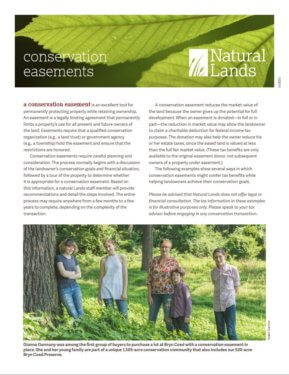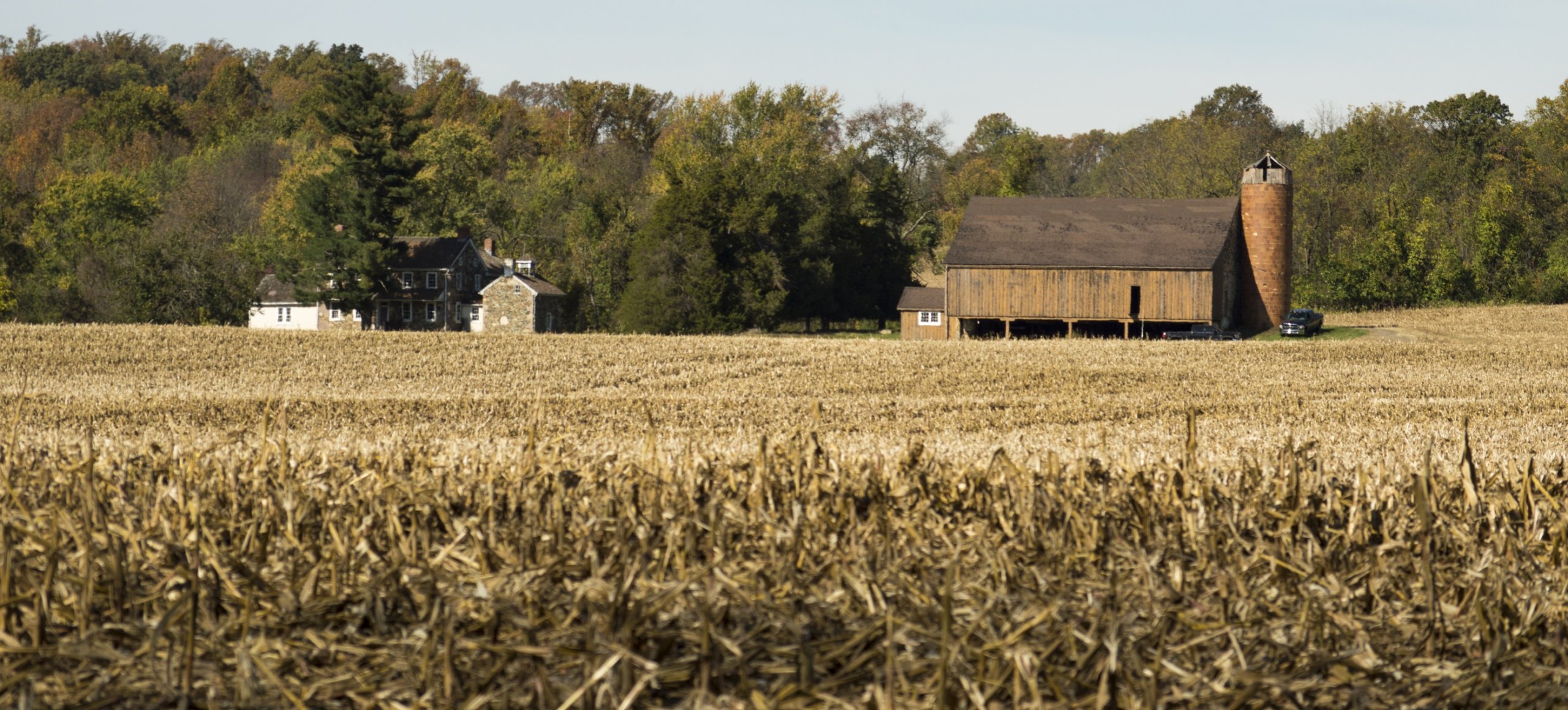
Download a copy of our handout, which offers information on the easement process from start to finish.
A conservation easement reduces the market value of the land because the owner gives up the potential for full development. Easements are most often donated by the landowner and the donation may result in a charitable deduction for federal income tax purposes. Sometimes, though, easements are purchased by land trusts or a local or county open space program. In either case, the conservation easement may also reduce estate taxes—because the land will be valued at less than fair market value upon the owner’s death—and, depending on local laws, lower property taxes. Indeed, without these reductions in estate and property taxes, the landowner’s heirs may not be able to afford to keep the land in the family.
Donating an Easement
When a landowner donates an easement, he or she may be eligible for a charitable deduction equal to the amount of reduction in the land’s value. A qualified appraiser determines the amount of the reduction.
Selling an Easement
A landowner may also sell an easement to a qualified organization or government agency. This produces no charitable deduction if the easement is sold for its full value and may give rise to federal income tax obligations for either capital gains or ordinary income tax.
Donating an Easement Via Your Will or Living Trust
An easement may be donated to either a qualified conservation organization or government agency by will or living trust. Such a bequest would generate a charitable deduction for the estate of the person making the bequest.
Monitoring the Easement/Costs of Recording the Easement
Once a qualified organization holds the conservation easement, it is obligated to monitor the land on a regular basis to ensure that the easement is being upheld and to enforce it if it is violated. When picking a recipient organization, it is important that you choose a group that has the capacity and skills to fulfill this obligation now and in the future. The ongoing cost of monitoring is frequently covered by establishing a modest endowment.


